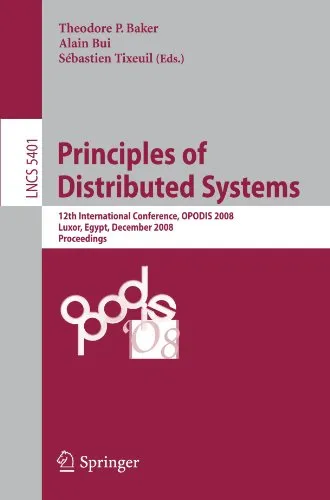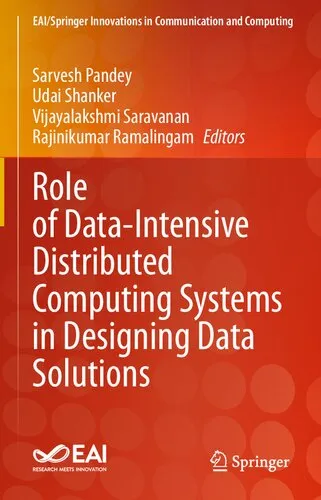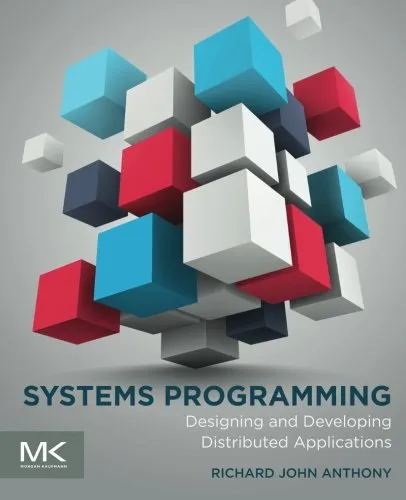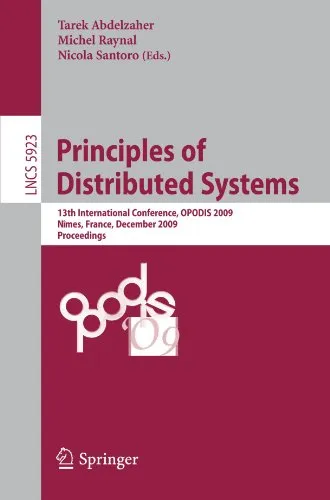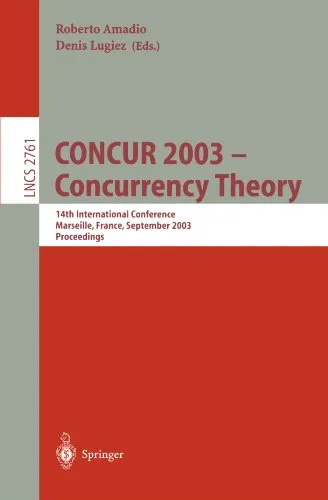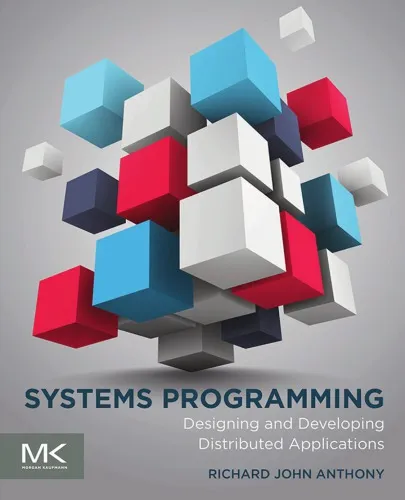Principles of Distributed Systems: 12th International Conference, OPODIS 2008, Luxor, Egypt, December 15-18, 2008. Proceedings
4.0
Reviews from our users

You Can Ask your questions from this book's AI after Login
Each download or ask from book AI costs 2 points. To earn more free points, please visit the Points Guide Page and complete some valuable actions.Related Refrences:
Introduction
Principles of Distributed Systems: 12th International Conference, OPODIS 2008, Luxor, Egypt, December 15-18, 2008. Proceedings is an in-depth exploration of groundbreaking research presented at OPODIS, a renowned international forum for the study of distributed computing systems. This book consolidates contributions from academics and professionals worldwide, focusing on the latest advances in distributed systems and algorithms, fault tolerance, network protocols, and system performance.
As distributed computing has become an integral part of modern technological infrastructures, this book serves as a critical resource for academics, students, and engineers to understand core principles and modern challenges. Covering a diversity of topics such as synchronization, consistency, and security, it delves into key problems and innovative solutions pertaining to highly decentralized network environments and applications.
Edited by Rachid Guerraoui, Theodore P. Baker, Alain Bui, and Sébastien Tixeuil, the proceedings of OPODIS 2008 provide a crucial platform to sift through leading-edge research in distributed systems, encapsulating contributions that address both theoretical foundations and practical implications. The book’s relevance extends to both researchers seeking a deeper theoretical understanding and practitioners aiming to resolve current system-level challenges.
Detailed Summary of the Book
At its core, the book offers insights into the principles governing distributed systems, accompanied by real-world case studies, experimental results, and innovative approaches to solving the inherent complexities of distributed environments.
The proceedings consist of papers that delve into various facets of distributed computing, including fault-tolerant systems, message passing, replication techniques, and system recovery. Key highlights involve the study of algorithms optimized for resource efficiency, discussions on minimizing latency in distributed networks, and robustness in the face of hardware or software failures.
Several sessions centered on synchronization challenges, data consistency models, and strategies for securing large-scale systems against malicious attacks. These themes have immediate relevance given the growing reliance on distributed systems in domains ranging from cloud computing to IoT-based ecosystems. Additionally, the conference explored advancements in distributed coordination mechanisms, emphasizing the role of algorithms in coping with the challenges of scalability and efficiency.
A unique feature of the book lies in its balance between theoretical research and application-oriented contributions. From mathematical modeling of distributed protocols to studying their implementation in real-world settings, this publication provides a comprehensive outlook for readers seeking to grasp the multifaceted nature of distributed systems design and development.
Key Takeaways
- An in-depth understanding of fundamental principles in distributed computing and their evolution over time.
- Exposure to state-of-the-art algorithms and methodologies aimed at improving the efficiency and reliability of distributed systems.
- A critical assessment of the challenges posed by modern distributed environments, such as scalability, fault tolerance, and communication overheads.
- Insights into solutions addressing synchronization issues, consensus protocols, and secure communication strategies.
- A glimpse into future trends and research directions in distributed systems, ensuring relevance to ongoing academic and industrial pursuits.
Famous Quotes from the Book
"Distributed systems do not eliminate the challenges of complexity; they merely distribute them across space and time."
"The strength of a distributed system lies not in its individual nodes but in the resilience and adaptability of its collective architecture."
Why This Book Matters
In an increasingly interconnected world, where distributed systems govern everything from social media platforms to critical infrastructure, the importance of understanding their underlying principles cannot be overstated.
This book captures not only the technical aspects of distributed computing but also the philosophical challenges of designing systems that are robust, efficient, and secure. By focusing on both theoretical and practical dimensions, it equips readers with the tools and knowledge to tackle modern distributed computation problems while encouraging them to contribute to the field's evolution.
Furthermore, the proceedings from OPODIS 2008 reflect the collaborative and interdisciplinary spirit of the international research community, demonstrating the value of global academic discourse in addressing shared technological challenges. Whether you're a student, a seasoned researcher, or a practitioner, this book lays the groundwork for insightful contributions and innovative solutions within the realm of distributed systems.
Free Direct Download
You Can Download this book after Login
Accessing books through legal platforms and public libraries not only supports the rights of authors and publishers but also contributes to the sustainability of reading culture. Before downloading, please take a moment to consider these options.
Find this book on other platforms:
WorldCat helps you find books in libraries worldwide.
See ratings, reviews, and discussions on Goodreads.
Find and buy rare or used books on AbeBooks.
1354
بازدید4.0
امتیاز0
نظر98%
رضایتReviews:
4.0
Based on 0 users review
Questions & Answers
Ask questions about this book or help others by answering
No questions yet. Be the first to ask!
